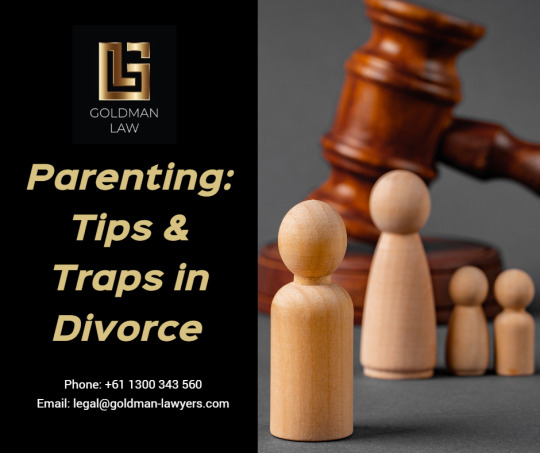Text

Public Policy Is Important
In the Marriage of Dornom and Dornom, the parties were married in Australia while they were domiciled there. The husband obtained a divorce in California, and later, the wife filed for divorce in Western Australia, contesting the recognition of the Californian divorce. Section 104(5) of the Family Law Act 1975 (Cth) governed the recognition of the Californian divorce decree. However, there was no evidence regarding the husband's intention or whether California had become his domicile of choice. At the time of his divorce application, he was residing in California for seven to eight months. The only factor available for consideration was a real and substantial connection between the husband and California. Barblett J concluded that there was a real and substantial connection between the husband and California as he served the wife with the divorce application and complied with procedural requirements. Barblett J highlighted the important public policy considerations of recognizing decrees from different nations as a matter of comity between courts.
This case highlights the significance of public policy considerations and why parties may choose to rely on a divorce order from an overseas jurisdiction or Australia. One reason is the different time limits that may apply for making applications in court, particularly regarding property and maintenance matters. In some jurisdictions, divorce, property, and maintenance applications are not separate, such as in England. This could result in individuals being unable to pursue property or maintenance claims if they are not granted leave to file their applications in the relevant jurisdiction.
Domicile is Confusing in Forum Disputes
Forum disputes in divorce cases were addressed in Ferrier-Watson v McElrath. In this case, the husband applied for a divorce in Australia, while the wife and children resided in Fiji throughout the marriage. The wife had initiated proceedings in Fiji for judicial separation and property settlement, but she did not seek a divorce due to social stigma. The husband rented a property in Australia and filed for divorce shortly after. The wife responded by objecting to the court's jurisdiction and requesting a permanent stay of the husband's divorce application. Since the husband was not an Australian citizen and had not been ordinarily resident in Australia for 12 months before filing the application, he had to establish a domicile based on the balance of probabilities. The trial judge was satisfied that the husband had intended to make Australia his permanent home and granted the divorce. The wife appealed the trial judge's orders, but the Full Court upheld the finding of domicile, affirming that the Domicile Act 1982 (Cth) did not replace the entire common law and that residence alone was not the sole criterion for establishing domicile in a country.
Contact us for all of your legal requirements:
Website: goldman-lawyers.com
Email: [email protected]
Phone: +61 1300 343 560
#legal advice#divorce lawyer#familylawyers#family#bestlawyers#parenting#tips#parenting tips#law#law firm
0 notes
Text

Arrangements for Children in Divorce Proceedings
When seeking a divorce, if there are children under the age of 18 involved, Section 55A of the Family Law Act 1975 (Cth) requires the parties to establish appropriate arrangements for the care, welfare, and development of those children.
Section 55A reflects a public policy objective to safeguard the children's best interests during the termination of their parents' marriage. The Full Court emphasized in Navarro & Jurado [2010] FamCAFC 210 that the declarations made under Section 55A(1) are an integral part of the divorce process and should not be treated as mere formalities.
Although the Act does not provide a specific definition for "care, welfare, and development," in Opperman & Opperman [1978] 20 ALR 685; FLC 90-432, the Full Court stated that the party seeking relief bears the burden of presenting sufficient evidence to convince the court that the arrangements made, both material and emotional, are in the children's best interests given the circumstances.
Section 55A(1)(b)(ii) allows a divorce to be granted even if the court is not satisfied that proper arrangements have been made for the children, provided there are circumstances warranting the divorce order to take effect.
In the case of In the Marriage of Maunder [1999] FamCA 1430; (1999) FLC 92-871, the court took a vigorous approach to this matter. The husband had applied for a divorce, while the wife filed applications for property settlement, spousal maintenance, and child maintenance. The wife opposed the divorce application, expressing concerns about the children's well-being and the husband's absence from Australia.
The divorce application was presented before Justice Frederico, who declared under Section 55A(1)(b)(ii) that proper arrangements had been made for the children and granted the divorce. However, the wife appealed, and the Full Court allowed the appeal, finding that it could not be satisfied that adequate arrangements had been made for the children. As the husband was outside the court's jurisdiction and not subject to its procedural orders, the court emphasized the positive obligation placed on it by Section 55A to protect the interests of children in divorcing families.
If the court is not satisfied that proper arrangements have been made for the children, it is prohibited from granting a decree of divorce. Section 55A mandates a comprehensive consideration of the welfare arrangements for children in divorce cases, reflecting a firm policy to prioritize their well-being.
Contact us for all of your legal requirements
Website: goldman-lawyers.com
Email: [email protected]
Phone: +61 1300 343 560
#legal advice#parenting#divorce lawyer#divorce attorney#family#bestlawyers#australianlawyers#children#marriage
0 notes
Text

Proposed Changes to 'best interests' Parenting -
Children Factors
"FLAB"
(Family Law Amendment Bill 2003)
It makes it clear in what circumstances a court can vary an existing parenting order.
It strengthens compliance with, and enforcement of, parenting orders by redrafting the provisions in Div 13A of Pt VII (compliance with parenting orders) to make them simpler and easier to apply, ensuring registrars can make compensatory time orders, and enhancing the power of the courts to protect parties, and their children, from the harmful effects of litigation through new case management provisions and a new power for courts to restrain the repeated filing of new applications.
It enhances the voices of children in family law proceedings by codifying a requirement for Independent Children's Lawyers (ICLs) to meet with and seek the views of children, removing the restriction on judicial discretion to appoint ICLs in proceedings under the Hague Convention, and establishing a regulatory making power for Government to make regulations that would provide standards and requirements to be met by family report writers who prepare family reports.
Simplifying enforcement provisions
The proposed Div 13A of the FLA is intended to be simpler and easier to apply than the current provisions which deal with enforcement of parenting orders.
The definition of “reasonable excuse” for contravening a parenting order in s 4(1) will be repealed and replaced with a new definition of “reasonable excuse for contravening a child related order”.
Other changes include giving registrars greater power to make parenting orders so that they can make orders that compensate for time lost with the child and new provisions for ordering make up time.
Codifying the rule in Rice & Asplund
The proposed s 65DAAA states that, in considering whether to allow a new application, consideration should be given as to whether there has been a change of circumstances that, in the opinion of the court, is significant and it is safe and in the best interests of the child for the order to be considered.
The rule in Rice & Asplund (1979) FLC ¶90-725 is generally not in the best interests of the child and constant re-litigation of parenting arrangements is not recommended.
Harmful proceedings
The new harmful proceedings provision seeks to implement recommendation 32 of the ALRC report, which referred to Marsden & Winch (2013) as an example of a gap in the courts’ powers to scrutinise the institution of further proceedings.
The power to prevent a party from instituting further proceedings is only exercisable where the court is satisfied that a person has frequently instituted or conducted vexatious proceedings in Australian courts or tribunals.
Contact us for all of your legal requirements:
Website: goldman-lawyers.com
Email: [email protected]
Phone: +61 1300 343 560
#familylawyers#family law#parenting#legal advice#legal service#law firms near me#australianlawyers#flab#children
0 notes
Text

Apportioning liabilities and losses?
In the context of property division during divorce proceedings: when property is identified, by treating the loss as a premature distribution of the asset pool and notionally adding it back to the pool as the asset of the party who had its sole benefit (‘add-backs’) (In the Marriage Of: Azelda and Anthony Clyde Townsend [1994])
Contact us for all of your legal requirements:
Website: goldman-lawyers.com
Email: [email protected]
Phone: +61 1300 343 560
#divorce lawyer#family lawyer#family law#best lawyer#law firm#property#asset management#marriage#legal advice
0 notes
Text

Why Do Mothers Have Higher Custody Statistics Than Fathers?
A study based on court files shows that in both court and non-court ordered arrangements, it is most common for children to spend the majority of their time with their mother and to see their father regularly.
There are a number of reasons why mothers have higher custody statistics than fathers in Australia. One reason is that the child is often placed in the mother’s primary care whilst the father pays child support to the mother.
Typically, the mother is the child’s primary caregiver
Child custody is of critical importance to parents, and the mother vs father custody statistics in Australia can help inform your decisions.
To provide some context, the 2006 Australian Bureau of Statistics found that around 42% of children aged less than 18 years lived in single-parent households, and this number continues to grow each year.
The Australian Institute of Family Studies also found that 20% of children lived in blended families where they have step-brothers and sisters and a step-parent.
Key messages
Most children are faring well after separation, according to their parents.
Children in families affected by family violence are less likely to be doing as well as those in families not affected.
Children and young people want their views to be considered and taken seriously by parents and, where applicable, by family law professionals, especially when safety concerns are raised.
More info/help
Further reading
Child and parent-friendly summary. (2018). Children and young people in separated families: Family law system experiences and needs. Melbourne: Australian Institute of Family Studies.
Parenting arrangements after separation. (2019). Research summary. Melbourne: Australian Institute of Family Studies.
© Data from 2023 Australian Institute of Family Studies
Contact us for all of your legal requirements:
Website: goldman-lawyers.com
Email: [email protected]
Phone: +61 1300 343 560
#FamilyLaw#FamilyLawyers#AustralianLawyers#ChildCustody#ChildCare#Singlemother#BestLawyers#LegalAdvice#GoldmanLaw#family disputes#family#parenting
0 notes
Text

Women must read "Planning tips to avoid child support."
This is a summary of information that has been provided by men and where we have access to research and other data. Goldman Law provide this as an essential requirement for both parents to be aware of so that they do not make mistakes and rely on the Government to collect child support for you.
Enter into binding child-support agreements prior to separation. Speak to Goldman Law now.
1. See Your Children More
The single best thing for avoiding child support is to spend time with your children. How much you pay basically depends on how many nights per fortnight the children spend with you. Child support payments are lower if you have at least 2 nights with the children per fortnight. The amount drops again if you have 5 nights and then keeps reducing as the number of nights increase. See the online calculator / estimator.
Click on the link below to continue reading:
https://qr.ae/pK8BMG
Contact us for all of your legal requirements:
Website: goldman-lawyers.com
Email: [email protected]
Phone: +61 1300 343 560
#Goldman Law #FamilyLaw #LegalAdvice #AustralianLawyers #BestLawyers #TopLawFirm #Family #Law #Legal #ChildSupport #FamilyPlanning #FamilyLawInquiries
0 notes
Text

How Good Must the System Be Now?
At the request of the committee, the Australian Parliamentary Library compiled the following list of family law inquiries and report.
The Family Law Act 1975 received Royal Assent on 12 June 1975 and commenced on 5 January 1976. The ALRC noted in its 2019 report that ‘since the inception of the Family Law Act and the of the Family Court, there have been numerous inquiries into the family law system…more recent inquiries in Australia have focused on the intersection between family v creation iolence and family law.
The Family Law Act 1975 received Royal Assent on 12 June 1975 and commenced on 5 January 1976. The ALRC noted in its 2019 report that ‘since the inception of the Family Law Act and the creation of the Family Court, there have been numerous inquiries into the family law system…more recent inquiries in Australia have focused on the intersection between family violence and family law.
Family law inquiry and report
1974 Senate Standing Committee on Constitutional and Legal Affairs, Law and administration of divorce and related matters, and the clauses of the Family Law Bill 1974, Final Report, October 1974.
1980 Joint Select Committee on the Family Law Act, Family law in Australia, August 1980. (volume 1 and volume 2)2
1986 P McDonald (ed), Settling up: Property and income distribution on divorce in Australia, Australian Institute of Family Studies, 1986.
Click on the link below to continue reading:
https://shorturl.at/blEX3
Contact us for all of your legal requirements:
Website: goldman-lawyers.com
Email: [email protected]
Phone: +61 1300 343 560
#Goldman Law #FamilyLaw #LegalAdvice #AustralianLawyers #BestLawyers #TopLawFirm #Family #Law #Legal #FamilyLawReports #FamilyReports #FamilyLawInquiries
0 notes
Text

Family Law Property Decision Does Not Need To Express Mention It Provides For A “Just And Equitable” Distribution
The case of Hearne v Hearne [2015] FamCAFC 178 (16 September 2015) was an appeal by the husband to the Full Court of the Family Court of Australia from a decision by Judge Harman of the Federal Circuit Court of Australia.
The matter involved the settlement of property after a husband and wife permanently separated. The Trial Judge’s decision was that the property is divided with 65% going to the wife and 35% going to the husband.
The ground of appeal by the husband considered here was that the Trial Judge had not stated that it was just and equitable to make an order altering property interests under section 79(2) of the Family Law Act 1975 (Cth) (“the Act”).
Click on the link below to continue reading:
Contact us for all of your legal requirements:
Website: goldman-lawyers.com
Email: [email protected]
Phone: +61 1300 343 560
#FamilyLaw #BestLawyers #GoldmanLaw #LegalAdvice #Law #Legal #AustralianLawyers #TopLawFirm #Family #ParentingLaw #Parenting #LawAdvice
0 notes
Text

Contravention and Significant Circumstances Change - Reform to Rice v Asplund "FLAB 2023"
(Family Law Amendment Bill 2003)
It makes it clear in what circumstances a court can vary an existing parenting order.
It strengthens compliance with, and enforcement of, parenting orders by redrafting the provisions in Div 13A of Pt VII (compliance with parenting orders) to make them simpler and easier to apply, ensuring registrars can make compensatory time orders, and enhancing the power of the courts to protect parties, and their children, from the harmful effects of litigation through new case management provisions and a new power for courts to restrain the repeated filing of new applications.
It enhances the voices of children in family law proceedings by codifying a requirement for Independent Children's Lawyers (ICLs) to meet with and seek the views of children, removing the restriction on judicial discretion to appoint ICLs in proceedings under the Hague Convention, and establishing a regulatory making power for Government to make regulations that would provide standards and requirements to be met by family report writers who prepare family reports.
Simplifying enforcement provisions
The proposed Div 13A of the FLA is intended to be simpler and easier to apply than the current provisions which deal with enforcement of parenting orders.
The definition of “reasonable excuse” for contravening a parenting order in s 4(1) will be repealed and replaced with a new definition of “reasonable excuse for contravening a child related order”.
Other changes include giving registrars greater power to make parenting orders so that they can make orders that compensate for time lost with the child and new provisions for ordering make up time.
Codifying the rule in Rice & Asplund
The proposed s 65DAAA states that, in considering whether to allow a new application, consideration should be given as to whether there has been a change of circumstances that, in the opinion of the court, is significant and it is safe and in the best interests of the child for the order to be considered.
The rule in Rice & Asplund (1979) FLC ¶90-725 is generally not in the best interests of the child and constant re-litigation of parenting arrangements is not recommended.
Harmful proceedings
The new harmful proceedings provision seeks to implement recommendation 32 of the ALRC report, which referred to Marsden & Winch (2013) as an example of a gap in the courts’ powers to scrutinise the institution of further proceedings.
The power to prevent a party from instituting further proceedings is only exercisable where the court is satisfied that a person has frequently instituted or conducted vexatious proceedings in Australian courts or tribunals.
Contact us for all of your legal requirements:
Website: goldman-lawyers.com
Email: [email protected]
Phone: +61 1300 343 560
#FamilyLaw #FamilyLawyers #FLAB #AmendmentBill #GoldmanLaw #AustralianLawyers #TopLawFirm #LegalAdvice #Law #Legal #Parenting #Family
0 notes
Text
Avoid Getting Stuck in Parenting Disputes
In Australia, the Family Law Act of 1975 provides guidelines for disputes related to parenting. If you find yourself in a parenting dispute and want to avoid getting stuck, there are steps you can take. Firstly, it's important to try and find a resolution with the other parent before going to court. This can be assisted through family dispute resolution services, mediation, or counseling. If a resolution can't be found, you can apply to the court for parenting orders.
When applying to the court, you will need to prepare a parenting plan. This plan should outline your parenting arrangements and the responsibilities of each parent. The court will take this plan into consideration when making a final decision. It's important to note that, subject to the below reforms, the court's primary consideration is the best interests of the child.
To avoid getting stuck in a parenting dispute, it's important to be open to compromise and communication. This can help in finding a resolution that works for both parties and ultimately benefits the child.
What does the empirical evidence say?
The Family Law Act of 1975 is an important piece of legislation that provides guidelines for disputes related to parenting in Australia. According to the Act, the best interest of the child is the primary consideration in any decision relating to parenting matters. This means that the court will consider the child's safety, well-being, and long-term interests before making any decisions.
It is always better to try and find a resolution with the other parent before going to court. The family dispute resolution process, also known as mediation, can be helpful in finding a resolution that works for both parties. This can be done through a range of services, including counseling, negotiation, or mediation. The aim is to enable parents to reach an agreement without having to go to court. If the parents do need to go to court it is important to have a parenting plan outlining the roles and responsibilities of each parent.
It is worth mentioning that most couples separate amicably and are able to work out parenting and property arrangements without any legal intervention. However, in cases where parents are unable to resolve their issues, they may seek help from the family law system. Families who use the family law system are usually those who have more complex issues, such as a history of family violence, substance abuse, and mental health concerns.
In addition to the above, it is essential to mention that going to court can be time-consuming, stressful, and expensive. It is always better to try and work things out through negotiation or mediation, as this can lead to a more positive outcome for everyone involved. Overall, the goal is to find a resolution that works for both parents and, most importantly, protects the well-being and interests of the child.
Contact us for all of your legal requirements:
Website: goldman-lawyers.com
Email: [email protected]
Phone: +61 1300 343 560
#GoldmanLaw #BestLawyers #FamilyLaw #FamilyLawyers #Lawyers #Law #FamiliDisputes #LegalAdvice #TopLawFirm #Parenting #Parents #ParentingDisputes

0 notes
Text
What is the definition of family violence in Family Law?
A broad definition of family violence was introduced into the Family Law Act 1975 (Cth) (FLA) in 2012 and applies in all cases filed after 7 June 2012. The definition removed the requirement that the victim’s fear be ‘reasonable’, in recognition of the subjective experience of fear and the psychological impact of violence.
Contact us for all of your legal requirements:
Website: goldman-lawyers.com
Email: [email protected]
Phone: +61 1300 343 560
#FamilyLaw #DefinitionofFamilyLaw #GoldmanLaw #LegalAdvice #Legal #BestLawFirmInAustralia #Lawyers #BestLawyers #FamilyLawyers

0 notes
Text
What are recent cases on family violence?
In Carra & Shultz [2012] FMCAfam 930 the father alleged that the mother, by withholding the child from him, was committing family violence by ‘preventing the family member from making or keeping connections with his or her family, friends or culture’. The court held that the withholding of time or communication with a child, by itself, does not constitute family violence. The essence of the definition of family violence is behaviour which ‘coerces or controls’ a family member ‘or causes [them] to be fearful’ (para 7).
Contact us for all of your legal requirements:
Website: goldman-lawyers.com
Email: [email protected]
Phone: +61 1300 343 560
#FamilyLaw #AustralianLawyers #Law #Case #TopLawFirms #BestLawyers #GoldmanLaw #LegalAdvice #Lawyers #FamilyViolence #RecentCase

0 notes
Text
What is the presumption of Equal Shared Parental Responsibility (ESPR) & Family Violence?
Section 61DA(2) provides that the presumption does not apply in cases of child abuse or family violence. In these circumstances, the court must consider whether sole parental responsibility or equal shared parental responsibility is appropriate. In Hutley & Hutley [2012] FamCA 679, while the mother adduced evidence that the father had been aggressive and intimidating during their relationship and was found guilty of assault, the court still ordered ESPR on the basis that the parties had managed to make joint decisions about the children.
Contact us for all of your legal requirements:
Website: goldman-lawyers.com
Email: [email protected]
Phone: +61 1300 343 560
#GoldmanLaw #GoldmanLawyers #FamilyViolence #ESPR #FamilyLaw #Family #LegalAdvice #Legal #TopLawyers #BestLawFirms #AustralianLawyers #FamilyViolence

0 notes
Text
Alteration Of Property Interests - Adjustment and Family Violence
The leading case of Kennon and Kennon established that an adjustment in a property settlement case can be made on the basis of family violence. Kennon and subsequent cases indicate that a small adjustment will be made but only in exceptional circumstances.
Kennon and Kennon [1997] FamCA 27; (1997) 22 Fam LR 1
In Kennon, the Full Court of the Family Court recognised family violence as a relevant issue in assessing the adjustment that should be made in a property settlement case. In that case there was a 4-year marriage and no children and a history of domestic violence assaults.
Devon & Devon [2014] FCCA 1566
In Devon, the parties were married for 31 years and had 4 adult children, including one with an intellectual disability. There were no significant assets at the start of the marriage and it was accepted that the husband ran the family business and the wife was the homemaker and main carer of the children.
There was an additional loading in the wife’s favour of a further 15 per cent based on future needs. Ultimately the wife received 70% of the asset pool and retained her superannuation (as did the husband), a percentage which included her claim for spousal maintenance.
Scott & Scott [2015] FCCA 2394
In Scott the parties had 3 children aged 16,17 and 20 years. The wife argued family violence by the husband and for an adjustment of the property in her favour between 65% and 80% which included a Kennon adjustment.
The wife gave evidence of family violence. She was isolated from her family and friends and the husband did not allow her to return home to spend time with her dying mother. The husband had physically assaulted her and there was verbal and physical abuse throughout the marriage witnessed by the children. The husband unsuccessfully argued that the wife’s evidence of family violence was not corroborated.
Importantly, the FLA does not require independent verification of allegations of family violence (such as police or medical reports) for a court to be satisfied that it has occurred. As the Full Court of the Family Court said in Amador & Amador [2009] FamCAFC 196; (2009) 43 Fam LR 268:
Contact us for all of your legal requirements:
Website: goldman-lawyers.com
Email: [email protected]
Phone: +61 1300 343 560
#GoldmanLaw #TopLawFirms #BestLawyers #AustralianLawyers #FamilyLaw #FamilyViolence #Law #LegalAdvice #Legal #PropertySettlement

0 notes
Text
"The Myths and Costs Behind FDRP Mediation in Family Law"
FDRP mediation or Family Dispute Resolution is considered as an alternative dispute resolution method to settle family law disputes.
However, this myth needs to be debunked due to the costs involved in the process. One of the misconceptions is that FDRP mediation is a cheap and fast way to resolve family law disputes. But in reality, it can be expensive, especially for low-income families, as the fees for the mediator and lawyer can add up.
Moreover, FDRP mediation may not work in all cases, and if unsuccessful, parties may end resorting to litigation, which can further add to the expenses. Another issue is that some mediators may not be trained and experienced enough to handle complex family law disputes, which can also contribute to the high costs. Therefore, FDRP mediation can be a useful tool for resolving family law disputes if the mediator is experienced and both parties are willing to negotiate in good faith. However, it is essential to recognize the costs involved and plan accordingly
Pre-litigation dispute resolution requirements have been increasingly used in Australia and overseas jurisdictions due to widespread dissatisfaction with litigation as a pathway to resolution.
Benefits and critiques of the s. 60I provisions
(Adapted from Shelby Higgs Howarth and Catherine Caruana- Working Paper)
The s. 60I provisions were intended to limit the involvement of courts to the more difficult cases and to promote cooperative parenting after separation.
Critiques of the s. 60I provisions include concerns about the potential for abuse, the impact on vulnerable parties, and the effectiveness of the certification process.
Benefits of the s. 60I provisions include increased access to dispute resolution services, reduced costs and delays, and improved outcomes for families.
Empirical evidence of the impacts of the s. 60I provisions
There is a growing body of evidence in Australia regarding the combined effect of the reforms on families requiring assistance to resolve disputes over the care of children, emerging primarily from government-commissioned evaluations.
However, there has been little empirical research on the certification process at the core of the s. 60I provisions.
Other Interpretations of 'Genuine Effort'
The requirement for disputants to demonstrate a bona fide attempt to resolve issues prior to initiating court action exists in other areas of Australian civil law and has been identified as a potential source of guidance in interpreting 'genuine effort'.
The 'genuine steps' requirement in the Civil Dispute Resolution Act 2011 (Cth) adds little to the interpretation of genuine effort.
The 'good faith' standard used in contract law and some family law jurisdictions overseas where mediation is mandated is not directly applicable to the FDR context.
Overall, caution should be exercised when using similar concepts to aid in the interpretation of genuine effort.
Barrier to accessing courts:
Some opponents of s. 60I argue that the certifications constitute a barrier to accessing justice that violates their fundamental rights.
Feminist critique
Engaging in mediation presents particular risks for women that are magnified when family violence is present.
Gendered assumptions about women's behaviour may influence FDRPs' assessments of 'genuine effort', even if unconsciously.
Included in the 2006 reforms were changes that sought to give the issue of family violence greater prominence in the FLA.
Concerns about family violence and gender bias are not unique to the Australian experience of FDR.
Impact on the family law system
Following the reforms of 2006, there was a swift and marked decline in applications to the family courts for parenting orders.
The use of FDR services increased significantly, with an increase of 57% for existing and expanded FDR services, and 336% for the network of FRCs.
Reduction in applications to family law courts
The reduction in applications to family law courts to settle disputes over children and the corresponding increase in the use of FDR clearly indicates an increase in the use of non-litigious pathways by separating parents.
Fewer parenting disputes are being resolved primarily by the use of legal services and more are achieving resolution primarily via assistance from family relationship services.
Post-FDR trajectories
In high-conflict cases, 63% did not reach agreement compared with 12% of middle- and low-conflict cases.
The international evidence points to the potential for harm for women and victims of violence.
Address feminist critiques of the process
2012 reforms aimed to improve responses to disputes involving children in cases of violence and abuse:
Amendments to the FLA that came into effect in 2012 were intended to support increased disclosure of concerns about family violence and child abuse. However, some critics argue that the reforms have not adequately addressed issues of family violence and power imbalances.
Contact us for all of your legal requirements:
Website: goldman-lawyers.com
Email: [email protected]
Phone: +61 1300 343 560
#FamilyLaw #BestLawyers #TopLawFirms #AustralianLawyers #GoldmanLaw #GoldmanLawyers #Law #Mediation #FDRPMediation #Mediation #Family #Legal #LegalAdvice

0 notes
Text
Proven Strategies for Clients to Work With Us?
Based on the search results, there are several proven strategies to “win” in family law matters. Some of these strategies include:
Focus on the best interest of your child: When it comes to child custody battles, courts prioritize the well-being and best interest of the child. Demonstrating that your decisions and actions are in the best interest of your child can strengthen your case.
Hire an experienced family lawyer: Having a knowledgeable and skilled attorney on your side can significantly improve your chances of success in a family law matter. They can provide guidance, navigate the legal process, and present your case effectively.
Work together to keep things from getting ugly: Avoiding unnecessary conflict and working cooperatively with the other party can be beneficial. Courts often appreciate parties who are willing to work towards a resolution and maintain a civil relationship.
Address any issues that could work against you: Identify any potential weaknesses in your case and proactively address them. It could involve taking steps to improve your living environment, addressing any concerns raised by the other party, or seeking counselling if needed.
Exercise caution with your social media use: Be mindful of what you post on social media platforms during a family law matter. Information shared online can be used against you, so it’s important to avoid posting anything that could be seen as negative or detrimental to your case.
Stay positively engaged in your child’s life: Show a consistent and involved presence in your child’s life. Be present for important events, maintain regular communication, and actively participate in their upbringing. This can demonstrate your dedication as a parent and strengthen your case for custody or visitation.
In addition to these strategies, it is crucial to keep detailed notes, prepare your case, listen to your lawyer, and be honest throughout the process. Family law cases can be complex and emotionally challenging, so it’s essential to approach them with careful planning and guidance from legal professionals.
Where the matter is sensitive, then we adopt a different strategy.
Contact us for all of your legal requirements:
Website: goldman-lawyers.com
Email: [email protected]
Phone: +61 1300 343 560
#FamilyLaw #AustralianLawyers #Law #WonCase #TopLawFirms #BestLawyers #GoldmanLaw #LegalAdvice #Lawyers
0 notes
Text
"Why do lawyers tend to underquote the initial fees? What can I do to protect myself?"
Law firms use various strategies to attract clients, including the initial underquoting of fees. Note: Goldman Lawyers do not use these tactics.
When it comes to marketing, law firms focus on making themselves easy to find online through search engine optimization (SEO) and running SEO campaigns to improve visibility in search results
One common reason for lawyers to initially underquote client fees is the traditional practice of not advertising prices. Many lawyers were trained by those who practiced at a time when advertisements were prohibited.
Another reason is that lawyers are often hesitant to bind themselves to a flat fee before knowing anything about the client.
Each client’s case differs in complexity and requirements, and lawyers may need more information before quoting an accurate fee. For example, a divorce case could range from simple and straightforward to complex and involving multiple assets.
Furthermore, the unpredictable nature of litigation and transactional matters can make it challenging to estimate the amount of work required.
Disagreements between parties and unforeseen circumstances may arise during the course of a case, potentially prolonging the work. Lawyers may be reluctant to set a fixed fee upfront when they cannot guarantee the duration or complexity of the legal matter.
Moreover, lawyers may be concerned that advertising prices could lead to a race to the bottom, with lawyers undercutting each other’s rates.
While this may benefit consumers, it may not be financially viable for lawyers. Lawyers require compensation that reflects their experience, expertise, and the value they provide to their clients.
In light of these factors, it may not be advantageous for lawyers to advertise their prices upfront (as we do!!!).
In summary, lawyers initially underquote client fees for various reasons, including the traditional practice of not advertising prices, the need to gather more information about the client’s case, the unpredictable nature of legal matters, and concerns about a race to the bottom in pricing.
Contact us for all of your legal requirements:
Website: goldman-lawyers.com
Email: [email protected]
Phone: +61 1300 343 560
#BestLawyers #AustralianLawyers #Law #Legal #GoldmanLaw #ProtectSelf #LegalAdvice #Law
0 notes